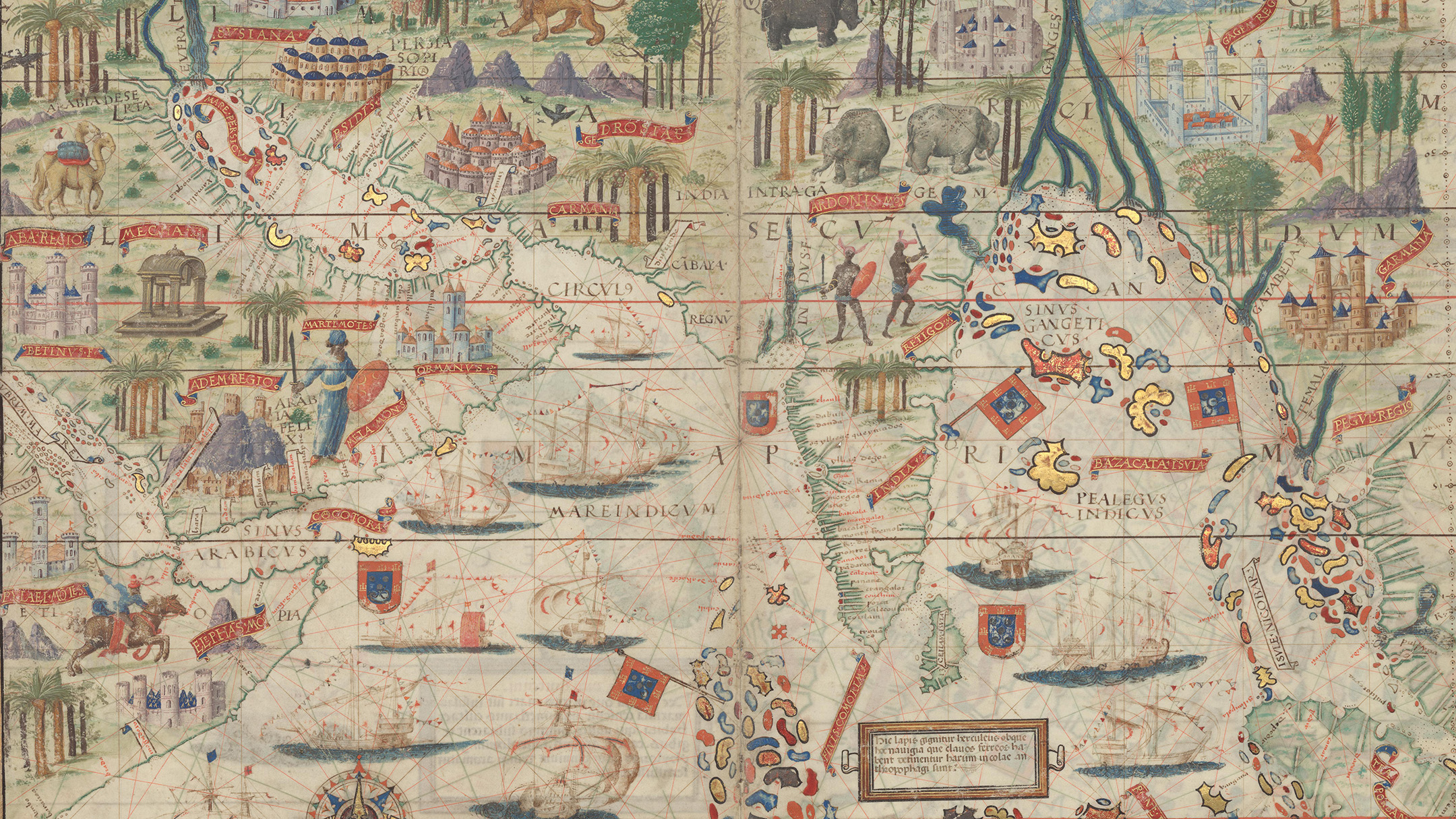Miyashiro, Adam. "Comparative epics: Teaching The Epic of Sunjata." Throughlines. www.throughlines.org/suite-content/comparative-epics-teaching-sunjata. [Date accessed].
Comparative epics: Teaching The Epic of Sunjata
Expanding the tradition of the medieval epic by decentering Europe.

The epic tradition and form is also an oral tradition. The Epic of Sunjata, detailing the life of Sunjata Keita, founder of the Keita dynasty in 11th century Mali, has been passed down through generations of Mande-speaking djeli, or griots. The Sunjata is the founding narrative of the Mali Empire in medieval Western Africa. Reading The Sunjata comparatively with La Chanson de Roland and El Poema de Mio Cid asks students to challenge Eurocentric and Orientalist narratives by thinking about the Western Atlantic as a wider region—one that provincializes Europe. When studying The Sunjata, students are asked to consider how these narratives of the African continent, and specifically the West African coast, challenge the white supremacist myths that continue to serve in the foundation of the US educational system.
Further learning
Recommended
-PaintingSceneLudovico-1816%20(1).jpg)
Spenser and his racializing influences
Comparing episodes from The Faerie Queene with episodes from the works that inspired Spenser, in particular excerpts from Ariosto’s and Tasso’s works, is a productive way to draw attention to how racialization travels and mutates across national traditions.

"Merciless Beauty" and carceral justice
“Merciless Beauty” is a poem written in a late 14th-century English that may or may not be Chaucer’s but is highly comparable to Chaucer’s usage. Reading the poem alongside the film The Prison in 12 Landscapes, students are asked to make connections between the poem and the film and their formal examinations of time, incarceration, and repetition.





